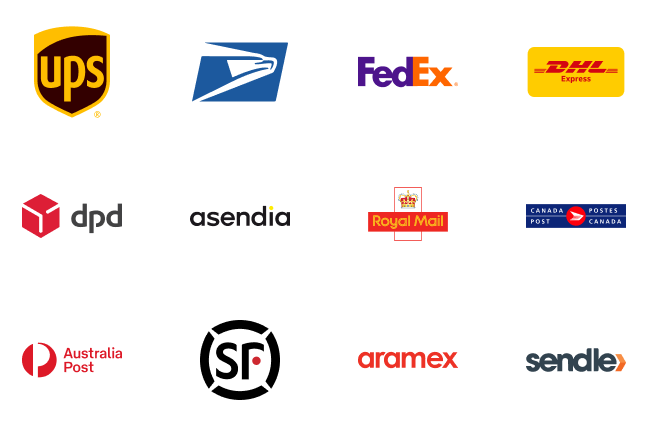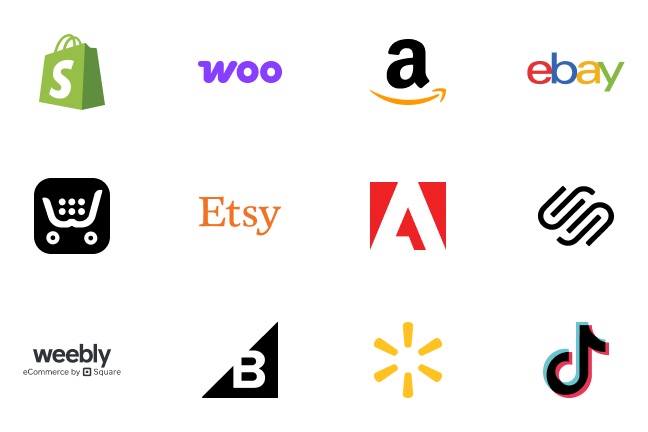There’s been a lot of buzz in the news cycle around the United States raising tariffs with countries such as Canada, China, and Mexico.
Trade wars can directly affect eCommerce businesses that import their products from these countries, as it will force them to raise customer prices in order to maintain their margins.
Another aspect of international trade that can affect eCommerce revenues is the prohibition of selling goods to sanctioned countries.
Selling to sanctioned countries is a violation of the law and can result in fines and other penalties, so it’s best to be mindful of the restrictions in place and ensure your eCommerce store is in compliance.
There are different types of international sanctions; this post will cover economic sanctions that eCommerce businesses should be aware of.
How Do Sanctions Work?
A sanction is meant to penalize a country or certain groups and individuals within a country.
Economic sanctions are usually a ban on trading any goods with the sanctioned party, though certain exceptions such as importing food and medicine for humanitarian causes may be allowed.
Tariffs and restrictions on financial transactions are other ways economic sanctions can be enforced.
Sometimes, it’s possible to still do trade with a sanctioned country if you apply for a license from your country’s government. If it turns out your business is non-compliant and violates a sanction, penalties can be severe - online marketplaces such as Amazon can choose to suspend your seller account or the government can give you a hefty fine.
OFAC Sanctions
OFAC stands for Office of Foreign Assets Control, and it's part of the U.S. Department of the Treasury. They are responsible for administering and enforcing sanctions. They also issue the proper licensing needed to do business with sanctioned countries, should any exceptions exist.
What are U.S. sanctions?
U.S. sanctions can change at any time. It’s recommended to visit the Sanctions Program and Country Information Resource Center to see who is on the OFAC list.
The Resource Center is very useful in providing updates on what the sanctions involve, in addition to context on how the sanctions came into place. You can see any new legislation related to the sanctions, in addition to authorizations needed and other frequently asked questions.
Iran shipping sanctions
Iran has been hit hard by sanctions in the U.S., particularly on its oil exports. Commercial goods shipments to Iran that don’t require an export license are limited to certain agricultural commodities, medicines, and medical supplies. See the complete list.
When were sanctions imposed on Iran?
On November 5, 2018, the U.S. fully re-imposed sanctions on Iran that were lifted or waived under the Joint Comprehensive Plan of Action (JCPOA). They also imposed new sanctions on over 700 individuals, entities, aircraft, and vessels based in Iran. For additional details, visit the Iran Sanctions page on the OFAC website.
Who else is on the OFAC list?
In addition to Iran, other regions and countries on the U.S. sanctions list include:
- The Balkans
- Belarus
- Burundi
- Central African Republic
- Cuba
- Democratic Republic of the Congo
- Iraq
- Lebanon
- Libya
- Nicaragua
- North Korea
- Somalia
- Sudan and Darfur
- South Sudan
- Syria
- Ukraine (Crimea) / Russia
- Venezuela
- Yemen
- Zimbabwe
Sanctions for these countries may change or be lifted, and new countries may be added at any time. Individuals, entities, and certain groups may also have sanctions. Visit the Sanctions Program and Country Information Resource Center to see the full listing and stay updated on any changes.
How to Avoid Violating a Sanction
Here are some tips to keep in mind:
- Know where you’re allowed to ship. Familiarize yourself with the countries and regions on the OFAC list and restrict any shipments to these destinations. You can automate this by creating shipping rules that will prevent the processing of any label to these countries. It’s also useful to explain in your shipping policy or FAQ section that you cannot ship to those particular countries.
- Understand the restrictions of the shipping destinations. It may still be possible to send shipments to sanctioned countries, but you have to confirm if there are any restrictions on the value of the items (for example, you may only be able to ship something that is under $100 in value). Sometimes, only personal gifts may be allowed, and you may need to obtain a license to sell commercial goods.
- Implement a compliance program. If your business processes a lot of shipments to restricted countries, it may be wise to hire a third party to help you create and maintain a compliance program that follows OFAC guidelines.
- Seek legal advice from an eCommerce attorney. An eCommerce lawyer may be able to advise you on sanctions laws or refer you to a specialist who can.
OFAC Sanctions: Know the Rules and Regulations
Even if it’s unintended, Violating a sanction can be costly for your business. It’s best to be mindful of countries that are problematic to ship to and proceed with caution if you want to move forward.
If you are actively processing shipments to these countries, consider working with a third party that can help you stay compliant with the ever-changing sanctions environment.
{{ watch-out-for-international-duty-and-tax }}















































.svg)
.svg)






.avif)
.avif)

.avif)
.avif)


.avif)


.avif)










.avif)
.avif)



.avif)
.avif)


.avif)
.avif)


.avif)











.svg)





.webp)